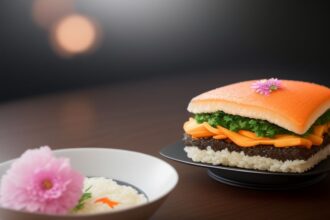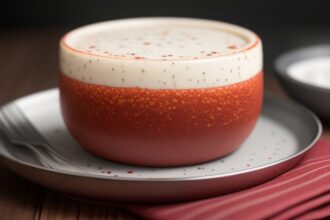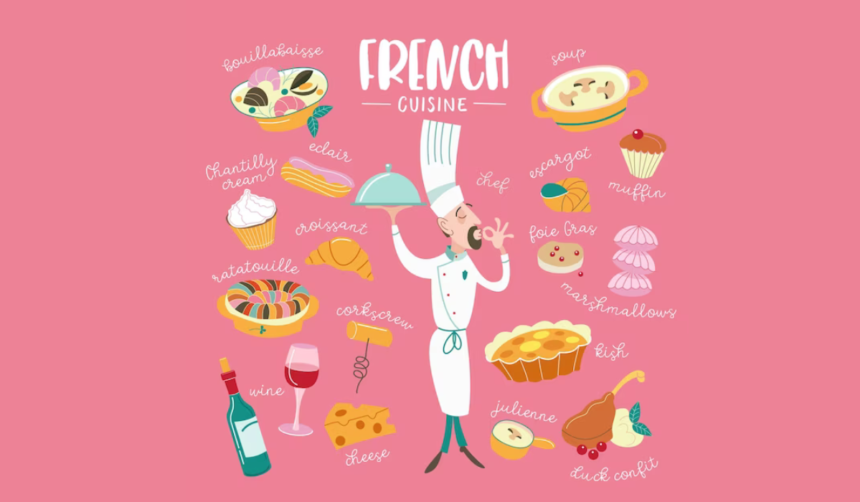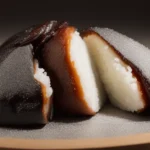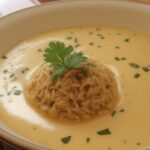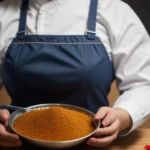French Cuisine: Tradition, Innovation, and Savoir Faire
France has long been known as a culinary mecca, with its rich and diverse food culture that has influenced chefs and food lovers around the world. French cuisine is a reflection of the country’s history, geography, and cultural heritage, blending traditional techniques with innovation and a deep respect for quality ingredients. In this article, we will explore the key elements that make French cuisine so special: tradition, innovation, and savoir faire.
1. A Brief History of French Cuisine
French cuisine has a long and storied history that dates back to the Middle Ages, when France was ruled by kings and nobles who had access to the finest ingredients and chefs in the land. The development of French cuisine was also influenced by the country’s geography, with its diverse landscapes and climates producing a wide range of ingredients, from fresh seafood on the coast to hearty meats and cheeses in the countryside.
2. The Influence of French Regions
France is known for its culinary diversity, with each region boasting its own unique specialties and traditional dishes. From the rich sauces of Burgundy to the seafood of Provence, French regional cuisine reflects the local ingredients and traditions of each area.
3. The Importance of Seasonal Ingredients
One of the hallmarks of French cuisine is its focus on using fresh, seasonal ingredients. French chefs take pride in sourcing the best produce, meats, and seafood available, and often plan their menus around what is in season. This emphasis on quality ingredients ensures that French dishes are bursting with flavor and nutrition.
4. French Culinary Techniques
French cuisine is known for its precise and meticulous culinary techniques, which have been honed over centuries of practice. From julienning vegetables to crafting intricate pastries, French chefs are masters of their craft, using a combination of skill, artistry, and creativity to create dishes that are as visually stunning as they are delicious.
5. The Role of Wine in French Cuisine
No discussion of French cuisine would be complete without mentioning the importance of wine. France is renowned for its vineyards and winemaking traditions, with each region producing its own distinct wines that pair perfectly with local dishes. French chefs often incorporate wine into their recipes, adding depth of flavor and complexity to their creations.
6. Traditional French Dishes
French cuisine is home to a wealth of classic dishes that have stood the test of time. From coq au vin to boeuf bourguignon, these iconic dishes showcase the rich, savory flavors and hearty textures that are characteristic of French cooking. The key to mastering these traditional recipes lies in mastering the basic techniques and using high-quality ingredients.
7. Modern French Cuisine
While traditional French cuisine remains a beloved staple, modern French chefs are also pushing the boundaries of innovation and creativity. From molecular gastronomy to fusion cuisine, French chefs are reimagining classic dishes and experimenting with new flavors and techniques. This culinary innovation is keeping French cuisine fresh, exciting, and relevant in a rapidly changing culinary landscape.
8. The Rise of French Bistros
French bistros have long been a popular dining destination for both locals and tourists, offering a casual and welcoming atmosphere alongside delicious, rustic dishes. These cozy eateries serve up classic French fare with a modern twist, making them a favorite spot for experiencing the best of French cuisine in a relaxed setting.
9. French Patissier: The Art of Pastry
French patissiers are revered for their skill and artistry in crafting exquisite pastries and desserts. From delicate macarons to decadent croissants, French pastries are a feast for the senses, combining light, airy textures with rich, indulgent flavors. The art of pastry-making in France is a time-honored tradition that requires precision, patience, and passion.
10. French Cheese: A Feast for Fromage Lovers
France is renowned for its vast array of cheeses, each with its own unique flavor, texture, and aroma. From creamy brie to tangy Roquefort, French cheeses are a celebration of the country’s rich dairy heritage. French chefs often incorporate cheese into their dishes, using it to add richness, depth, and complexity to their creations.
11. The Art of French Culinary Presentation
French chefs are known for their meticulous attention to detail when it comes to plating and presentation. Every dish is carefully arranged to showcase the colors, textures, and flavors of the ingredients, creating a visual feast that is as enticing as it is delicious. French culinary presentation is a blend of art, science, and passion, with each presentation telling a story of the chef’s skill and creativity.
12. French Culinary Schools
France is home to some of the world’s most prestigious culinary schools, where aspiring chefs can learn the art of French cuisine from master chefs and industry experts. These schools offer hands-on training in classic French techniques, as well as opportunities to explore modern trends and innovations in the culinary world. Graduates of French culinary schools often go on to work in top restaurants around the world, carrying on the legacy of French cuisine.
13. The Future of French Cuisine
As the culinary world continues to evolve, the future of French cuisine is bright and exciting. French chefs are embracing sustainability, seasonality, and innovation in their cooking, creating dishes that are both delicious and environmentally conscious. The principles of tradition, innovation, and savoir faire remain at the heart of French cuisine, ensuring that it will continue to inspire and delight food lovers for generations to come.
14. French Cuisine Around the World
French cuisine has had a profound influence on culinary traditions around the world, with French dishes and techniques shaping the way we eat and cook. From haute cuisine restaurants in Paris to neighborhood bistros in New York City, the flavors and techniques of French cuisine can be found in kitchens and dining rooms around the globe. French chefs are often hailed as some of the best in the world, with their passion for quality ingredients, artful presentation, and culinary excellence setting a high standard for chefs everywhere.
15. Conclusion
French cuisine is a celebration of tradition, innovation, and savoir faire, with a rich history and culinary heritage that continues to inspire chefs and food lovers around the world. From classic dishes to modern creations, French cuisine is a testament to the artistry, skill, and passion of its chefs, who work tirelessly to create dishes that are as beautiful as they are delicious. Whether you’re dining in a cozy bistro in Paris or cooking in your own kitchen, the spirit of French cuisine is sure to delight your senses and nourish your soul. Vive la cuisine française!



